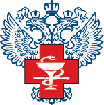 pirogov national medical surgical center
pirogov national medical surgical centernational center for researh and treatment of autoimmune diseases new jersey center for quality of life and health outcome research |
international symposium stem cell transplantation in multiple sclerosis: sharing the experience |
 |
 |
 |
 |
 |
 |
 |
 |
 |
 |
 |
 |
 |
 |
 |
| Autologous Il-10 Modified Dendritic Cells in Multiple Sclerosis: First Clinical Experience |
|
International Symposium "Stem Cell Transplantation in Multiple Sclerosis", Key-Note Lectures Book, 2009, p. 124 M. Odinak1, G. Bisaga1, V. Chirsky2, I. Baldueva3, V. Moiseyenko3, T. Neckhaeva3, 1 Dept. of Neurology Military Medical Academy, St. Petersburg, Russia Background Dendritic cells (DCs) are universal antigen-presenting cells of the immune system and they can modulate the nature of immune responses in multiple sclerosis (MS) in temrs of stimulation or inhibiton. Previous experimental studies have demonstrated that the administration of immature IL-10 modified DCs is an important tool in eliciting of anti-inflammatory immunity (Link H. et al., 2004). In order to estimate safety and immunological and clinical responses we investigated immature IL-10 modified DCs treatment of MS patients. Materials and methods Two patients with secondary progressive (SP) MS (1M, 1F; aged 46 and 52 ys, duration 10 and 8 ys, EDSS 6.0 and 5.0). The first patient had no relapses within the prevoius 4 years, and had minor effect on methylprednisolone treatment. The second patient despite of SP course had relapses every year and some positive but not stable effect on methylprednisolone treatment. DCs were generated from blood monocytic cells of patients by cultuvation in vitro in the presence of GM-CSF and IL-4, followed by IL-10. The obtained autologous immature DCs (CD11c+ HLA RD+ CD1a+ CD83- CD80-) were injected intracutaneously in paravertebral skin region. The treatment course included 4 injections with 30 days interval each. Results We found no any obvious systemic reactions, but slight local itch for 3 days after each injection. Clinical symptoms of the first patient remained stable without any improvement. The second patient gradually improved in EDSS score from 5.0 to 4.0 points during two last months of the treatment course and remained stable within the next 5 months (it was the best condition of the patient for the last two years). Immunological monitoring of serum showed tendency to reduction of CD3+ CD4+ Тh, СD19+ В-cells, CD95+ cells, HLA DR+ cells; decrease of CD4/CD8 index from 4.7 to 3.9 (first patient) and 3.2 to 2.7 (second patient), antibodies to myelin (first patient), CD19+ CD5+ В-cells (second patient); increase CD4+ CD25+ CD127- regulatory T cells; CD3+ CD16+ CD56+ T-NK-cells increase in the first and decrease in the second patients. Conclusion Injection course of autogenic immature DCs (CD11c+ HLA DR+ CD1a+ CD83- CD80-) is well tolerated and is followed with the anti-inflammatory immunological response. In one patient with secondary progressive MS we observed dramatic improvement of EDSS score. |
|
© KMart |
(last update) 28/10/2009 |